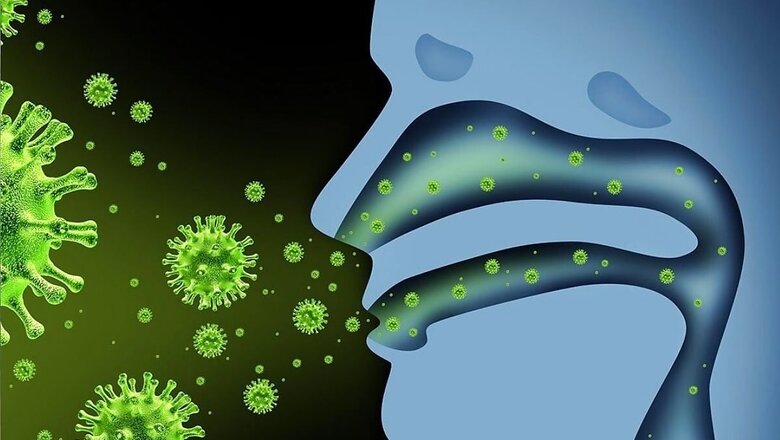
views
It seems to be the season of viruses. Another highly infectious virus, Norovirus, also known as the vomiting bug, has joined the, not so sparsely populated, clan. Cases of norovirus have recently been increasing across England, Public Health England (PHE) said.
Here is everything you need about the virus:
What is Norovirus?
Norovirus is a highly contagious virus that causes more than half of all foodborne illnesses in the United States, according to the Centers for Disease Control and Prevention (CDC).
While norovirus is also known as stomach flu, it is not, in fact, related to the seasonal flu, which is caused by the influenza virus, and it is not related to the virus that causes COVID-19. Other names for norovirus include “food poisoning” and a “stomach bug,” notes the CDC.
What are its symptoms?
The symptoms of acute gastroenteritis from norovirus typically develop 12 to 48 hours after catching the virus and last for about one to three days. Some of the most common symptoms include, diarrhea, stomach pain, nausea and vomiting, fever, headache and body aches.
It’s also possible to have norovirus but not show any signs of symptoms of the illness, notes the Mayo Clinic.
How dangerous is it?
Norovirus is found in the feces and vomit of people who’ve been infected in the virus. People get norovirus by accidentally ingesting tiny amounts of these feces or vomit, which can be found on unwashed food, in contaminated water, or on a contaminated surface.
People with the infection can release billions of norovirus particles; it only takes a small amount of those particles to make someone sick, according to the CDC.
How is it transmitted?
Eating food or drinking liquids that are contaminated with norovirus (for example, food that’s grown in contaminated water). Touching an object or surface that’s been contaminated with norovirus, then touching your mouth. Having direct contact — such as sharing food or utensils — with a person who has norovirus. Drinking contaminated water from a well or from a pool that isn’t properly cleaned.
How is Norovirus Diagnosed?
A doctor can usually diagnose norovirus based on a person’s symptoms. Norovirus can also be detected in a stool sample. If you have an underlying health issue or weakened immune system, your doctor may want to order a stool test.
Is it treatable?
Most people will recover from norovirus without needing any treatment, but older adults, small children, and people with underlying medical conditions can be more susceptible to dehydration, and may therefore require medical treatment or even a hospital stay.
How long does it take to heal?
Norovirus usually lasts from one to three days.
Although the symptoms usually only last for a few days, people are contagious for much longer. Some people can keep shedding the virus in their feces for weeks — or even months, if you have underlying conditions — after recovering from the infection.
Because there are many different types of norovirus, you can get sick from it many times. Some people might develop an immunity to some types of norovirus, but it’s not clear how long their immunity lasts.
Read all the Latest News, Breaking News and Coronavirus News here.



















Comments
0 comment